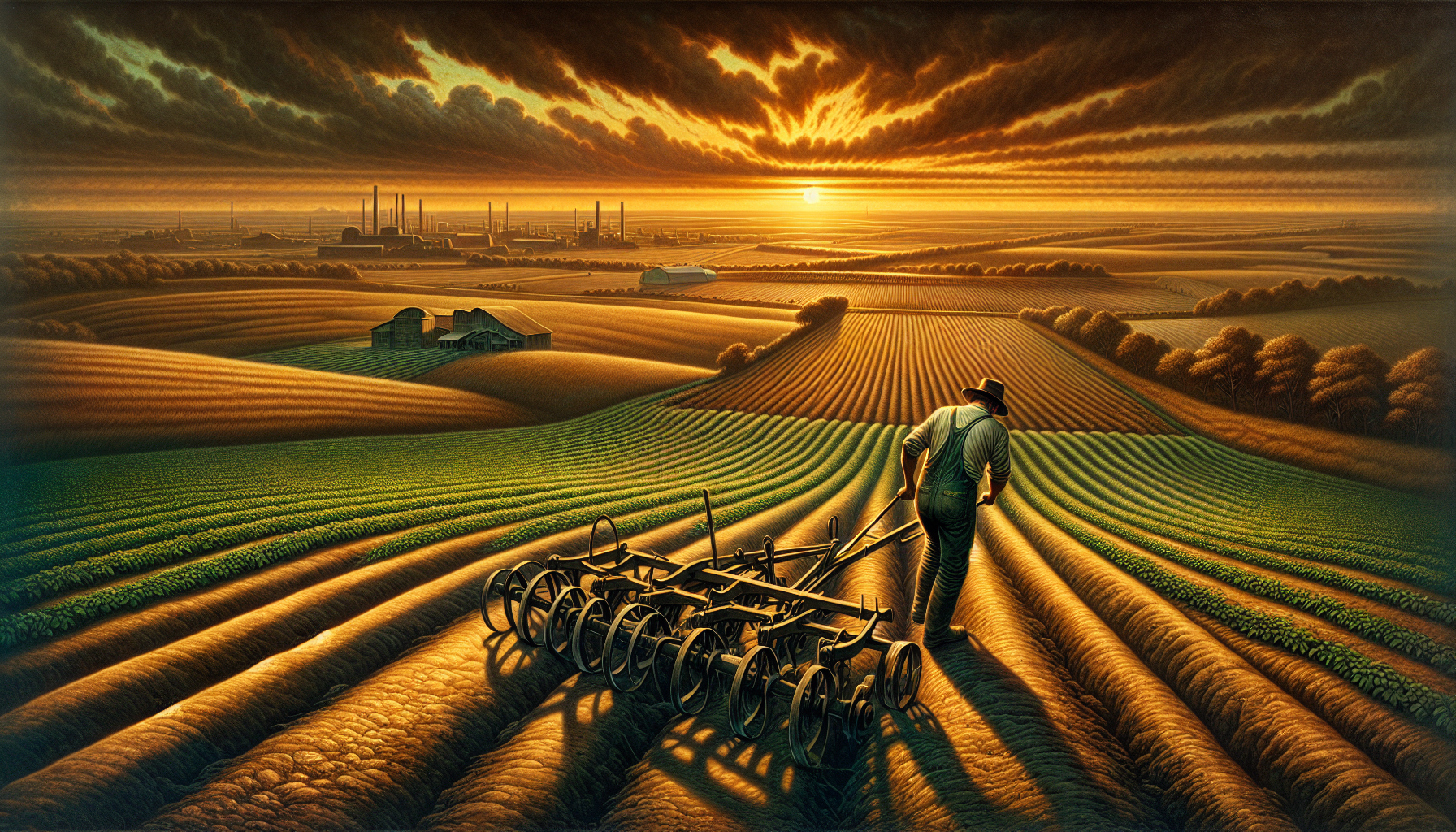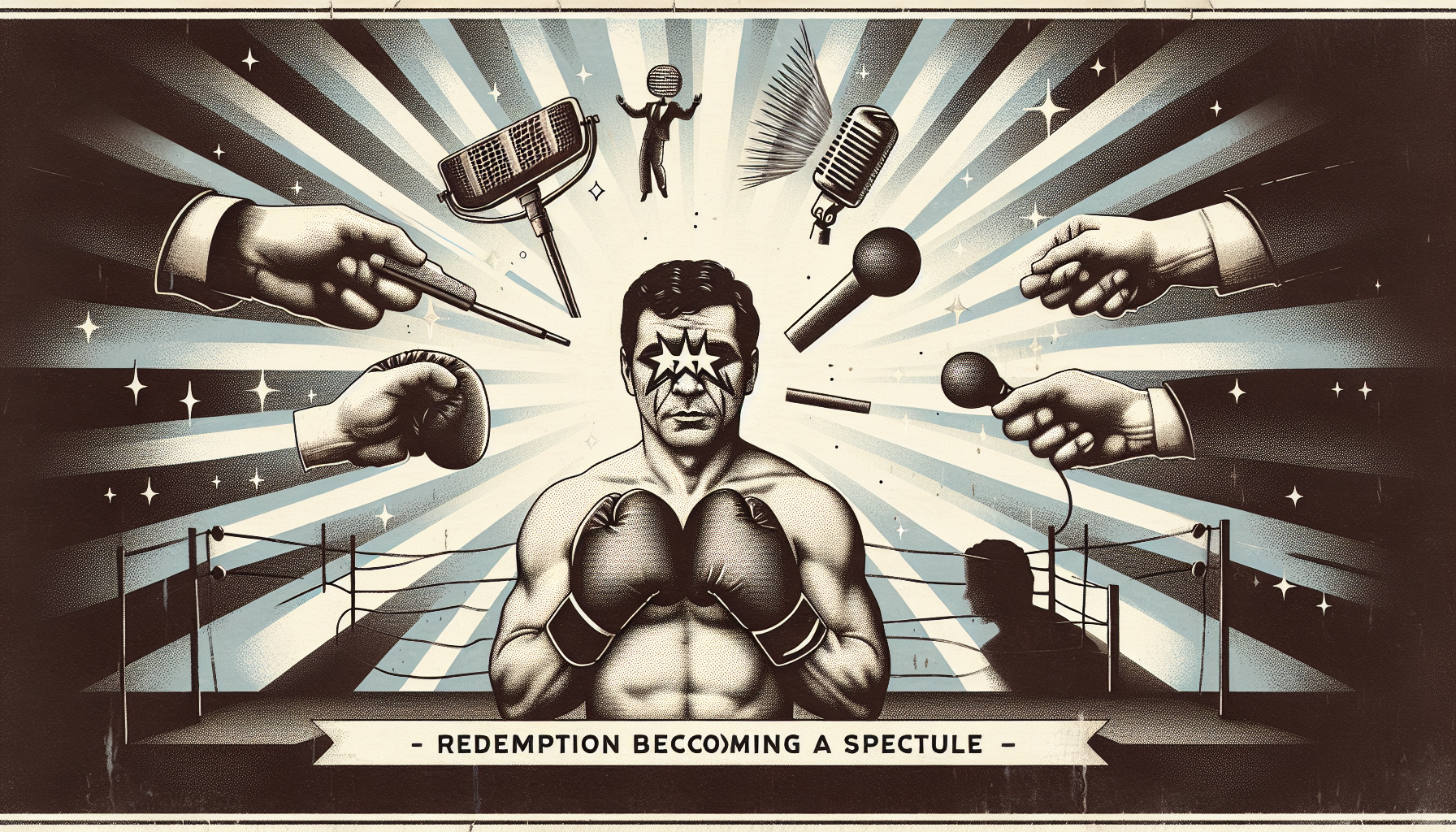Title: Fields of Friction: How Trump’s Trade War Is Plowing Through America’s Heartland
Dear readers,
The amber waves of grain have long symbolized American grit and promise. But what happens when those golden fields become the frontline of a global economic standoff? When tractors sow not only seeds, but doubt?
Let’s head to the Great Plains, not for a rustic idyll, but for a drama playing out in slow motion under sweeping skies—where American sorghum farmers are being caught in a geopolitical tug-of-war with few heroes and many casualties.
🇺🇸 The Farmer, the President, and the Price of Allegiance
Dan Atkisson of Kansas is the kind of figure politicians love to pose beside: sun-worn, resilient, and a proud steward of the land. Last year, China consumed nearly 90% of the U.S.’s sorghum exports, largely for livestock feed and to brew baijiu—a potent liquor packing more punch than a trade tweet. But this year? Exports dropped a staggering 95% between January and February. And yet, Atkisson is rising at dawn, planting 1,000 acres—25% more than last year.
Why? “If we move forward and things are not handled well, we could rethink some of those things,” he said. Translation: support for Trump’s aggressive tariff strategy is starting to wither.
This is more than a political footnote—it’s a portrait of a relationship cracking. Farmers once rallied behind Trump’s promises of protectionism and American primacy. But tariffs aren’t felt in D.C.—they’re felt in Stockton, Kansas, in rusting silos and flooded sorghum warehouses.
🌾 Planting Seeds in Uncertain Soil
Atkisson isn’t alone in his cautious gamble. Across the nation, farmers are being forced into daunting decisions in the absence of viable alternatives. Dry weather is pushing many toward sorghum—a hardy crop more tolerant to drought—but also now more vulnerable to market volatility.
Some, like Nebraska’s Don Bloss, are sticking with their sorghum legacy. He plans to plant 500 acres this May. Yet, his words cut through the dust: “It takes a lot of years of trying to build [export markets] up to have it knocked down in a day or two by one person.”
Others, like Glenn Brunkow in Wamego, Kansas, are abandoning sorghum altogether—for corn, whose better price stability and export demand are sweetening the switch.
And that’s the tragedy here: farmers aren’t choosing crops based solely on nature or need, but on policy tremors from Washington and retaliatory earthquakes from Beijing.
📉 A Trade War’s Harvest of Harm
The Trump administration’s promise to “ensure farmers have the support they need to feed the world” now echoes hollowly as sorghum inventory swells—up 42% from last year—and prices nosedive. Analysts project a 58% slump in total sorghum exports this year, the lowest since the tariff fiasco of 2018.
Meanwhile, Brazil is filling the vacuum in China’s supply chain with soy and corn, solidifying trade relationships that took the U.S. years to cultivate and mere months to lose.
And even the hope of aid feels distant. USDA support measures remain vague at best, and farmers are left wondering whether bailouts will come before bankruptcy.
💔 More Than a Crop, A Cultural Breaking Point
We often talk about “flyover country” as if it’s somewhere inert—a landscape to be ignored until election season. But sitting where policy and principle collide are people who tilled the soil with hope and now feel harvested for votes.
Just like Mickey Rourke’s meltdown in a reality TV house was not merely a moment of bad behavior, but a symptom of a system designed to exploit and discard—for attention, for spectacle, for ratings—so too is this trade row emblematic of a deeper rot. Farmers are not props in a nationalist script. They’re patriots with spreadsheets, investing futures—and their futures—on the whims of diplomacy.
🎯 Lessons from the Furrows
This story isn’t about one man or one farm. It’s about the complex interweaving of politics, loyalty, and livelihood. About how a handshake with tariffs can feel like a slap to a hand that just pulled last season’s harvest out of brittle soil.
Just as reality TV reminds us of our hunger for drama, this trade war reminds us of the dangerous theater playing out in the real world—where policy is weaponized, uncertainty is sustained, and those who feed us must gamble everything on the next season.
Until next time, stay grounded. In this age of viral rhetoric and volatile markets, perhaps courage doesn’t come from waving flags—but from plowing forward despite broken promises and thinning profits.
Yours truthfully,
A Watcher of Fields, Flags & Fallout

